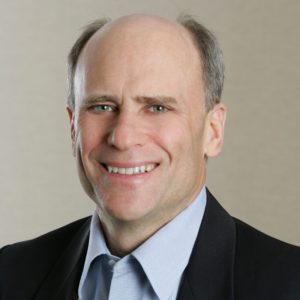
An Unforgettable Ice Skating Experience
The Christmas and New Year break brought a delightful family adventure as I took our kids to The Pavilion ice skating rink. Amid the frosty air and laughter, an unexpected turn of events unfolded, weaving an unforgettable tale of resilience and vulnerability.
After an hour and a half of joyful skating, my twin daughters approached, their eyes filled with excitement. They requested their older teen brother’s company, seeking the comfort of holding his hands as they navigated the icy rink. You can guess how that went. Knowing that their older brother would not want to hold their hands, I embraced the opportunity to be my daughters’ hero. I laced up my skates, envisioning a daddy/daughter skate that would etch itself into the fabric of their memories.
However, the canvas of smooth ice turned out to be a bit rough, as the Zamboni had missed re-icing before our skate. Undeterred, we embarked on our adventure.
A Tumble and a Lesson in Vulnerability
I should have calculated that the ice was in bad shape after an hour and a half of usage. However, eager to keep pace with the youthful exuberance around me, I took off too quickly, lost my balance, and found myself hurtling forward. In an attempt to regain composure, I leaned too far forward, and the ice skating brakes hurled me forward, resulting in a hard landing on my left shoulder.
Embarrassed and hoping to maintain an air of nonchalance, I rose to my feet. Internally, however, I was grappling with the physical aftermath of the tumble. After concluding our skate with my twins, I headed to the car for a dose of ibuprofen to alleviate the discomfort.
From Ice Rink to Examination Room
Concerned that I had separated my shoulder, given the audible pop and the peculiar sensation akin to hitting my funny bone, I sought the expertise of my brother-in-law, an orthopedic surgeon based in Anderson. The following day, he worked me into his schedule for a thorough examination and X-rays.
The journey to the examination room was an experience in itself. Clad in a flimsy green gown with darker green crowns, an unconventional take on camouflage, I pondered the parallels between vulnerability in medical situations and our approach at Intelligent Investing.
Financial Vulnerability and Intelligent Investing’s Approach
Just as changing into a gown signifies a willingness to be vulnerable for a medical diagnosis, at Intelligent Investing, we encourage our clients to be open about their financial situations. Our aim is to diagnose and prescribe a financial portfolio that not only supports their financial plan but aligns with their unique goals and dreams.
We delve into the intricacies of our clients’ lives, understanding family dynamics to aid in estate planning and unraveling their fears and investment backgrounds. Sensitivity plays a pivotal role, especially when clients have encountered challenges with past financial advisors.
The Importance of a Full Picture
Just as my brother-in-law needed to see the X-rays to comprehend the full extent of my injury, obtaining a complete picture is crucial in the financial realm. Without a deep understanding of our clients’ goals, family situations, risks, and dreams, we cannot choose or tailor an appropriate portfolio to suit their needs.
Misdiagnosis, whether in a medical or financial context, can lead to suboptimal outcomes. In my case, the accurate diagnosis allowed for the prescription of steroids to alleviate inflammation in my left shoulder, paving the way for a gradual recovery.
Gratitude for Professionals and a Financial Invitation
Reflecting on the entire experience, I’m grateful for the professionals who, through years of practice, lend their expertise to guide us through various challenges. As we step into 2024, the team at Intelligent Investing aims to be your financial professionals.
Catering to high-net-worth individuals and couples heading towards retirement, we employ our proprietary Intelligrations® to organize financial complexities. Our mission is to minimize financial stress and maximize lives, leveraging our understanding of complex concepts like inflation, taxes, volatility, and investor behavior.
If you resonate with our approach and seek a financial partner to navigate the intricacies of your financial journey, we invite you to reach out. Whether for a call or a coffee, let’s explore how Intelligent Investing, with its proprietary integrations, can be the compass guiding you towards financial success.
P.S. Exploring Vulnerability in Finance
For a deeper dive into the parallels between vulnerability in personal experiences and financial interactions, I’ve written a blog post titled Getting Naked. Feel free to explore and gain insights into the essence of our approach at Intelligent Investing.

